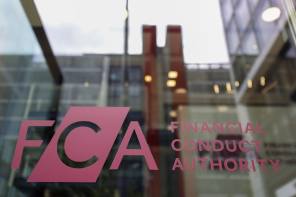

This is how the Bitcoin website describes the cryptocurrency, which is the fastest appreciating this year in trading against every major conventional currency.
Bitcoin was invented in 2009 by someone who calls himself Satoshi Nakamoto, a Japanese man born in April 1975.
Like Banksy, the anonymous England-based graffiti artist, his true identity remains unknown while the impact of his creation has been significant.
At the time of writing, $4,000 (£2,961) will buy one Bitcoin and there are presently $66bn (£48.86bn) of Bitcoins in virtual circulation.
Lightly traded, Bitcoin is also volatile – a year ago, $500 (£370) bought 1BT, before it rose to $2800 (£2,072)/1BT in June, and then fell back to $1900 (£1,406)/1BT in July, before regaining its upward momentum.
Demand
As a measure of its rapid appreciation, a sum of $1,000 (£740) invested in Bitcoins in 2010 would be worth $55m (£40.7m) today.
That makes the Bitcoin holding of Nakamoto, whoever he may be, worth in excess of $4bn (£2.96bn).
Key Points
- Bitcoin was conceived as a purely "peer-to-peer version of electronic cash".
- Digital security is provided through hashes.
- The main concern of governments involves its use in criminal acts.
How is Bitcoin used?
There are no Bitcoins in physical circulation. As a virtual currency, cryptography is used to control their number. Hence it is referred to as a cryptocurrency, or digital asset.
Nakamoto summarised his original vision in a 2009 abstract, Bitcoin: A Peer-to-Peer Electronic Cash System, which states ‘a purely peer-to-peer version of electronic cash would allow online payments to be sent directly from one party to another without going through a financial institution.’
Traditionally, governments have enjoyed a monopoly in issuing currencies via their central banks, but blockchain technology has changed that.
The first distributed blockchain, conceptualised by Nakamoto in 2008, was implemented the following year as a core component of Bitcoin, where it serves as the decentralised ledger for all transactions.
There are estimated to be up to 10 million holders of Bitcoin worldwide, of which more than half keep it as an investment. Those who transact send Bitcoins to each other over the Bitcoin network, which collates every transaction made during a specified time period into a list, called a block.
In essence, the blockchain – a long list of blocks – creates the trust necessary for transactions to take place between strangers online. This is maintained by miners whose computers crunch transactions, before confirming and writing them into a general ledger.
To provide further transparency between holders of Bitcoin, the blockchain can be used to explore every transaction between any Bitcoin addresses anywhere on the network, at any time. Every new block of transactions is added to the blockchain, creating a detailed archive, which is continuously updated for every participant.
Security
Digital security is provided through hashes: an algorithm-created sequence of letters and numbers, which is stored along with the block and date-stamped at the end of the blockchain.
Each hash is unique containing additional security data linking it to the hash of the previous block in the chain. This confirms that this block – and every subsequent block – is legitimate. If it has been interfered with, everyone knows.
Miners are rewarded with Bitcoins for their efforts in sealing off blocks with a hash. This process is competitive and arduous, but the reward creates an incentive to continue mining, and keep transactions flowing.
So how does the law deal with Bitcoin and other emergent cryptocurrencies? Several countries have taken steps to ban Bitcoin altogether, although in most jurisdictions it is legal. Its use, however, is not yet widely regulated.
The main concern of governments involves its widespread use in criminal acts, ranging from money laundering and drug trafficking to tax evasion and terrorism. Bitcoin exchanges in several countries are subject to their anti-money laundering (AML) laws.
The European Union has committed to tightening its digital currency rules, including Bitcoin, by the end of this year. In the US, various government agencies have been tasked to ensure that Bitcoin transactions are undertaken within the law. Last year, a Florida court ruled that Bitcoin should not be classified as money.
United Kingdom
In the UK, there continues to be a distinct absence of regulation or judgments defining its status.
The collapse of Mt.Gox in 2014, a leading bitcoin exchange, did lead to litigation in the UK. The Tokyo-based exchange, which had handled 70 per cent of all Bitcoin transactions, suspended trading and was liquidated, after $450m (£333m) disappeared. Two smaller UK exchanges, Moolah and MintPal, have also led to disputes.
It is distinctly possible that UK consumers could be adversely affected by fraudulent platforms involving digital currencies: lack of regulation and effective monitoring leaves them wide open to potential fraudsters. Regulators could protect or enhance protection for UK consumers by introducing a system of licensing, reporting and auditing for businesses operating such platforms which could do much to help prevent this – as applies in other areas of financial services.
Nevertheless, domestic law surrounding Bitcoin-related litigation remains ill-defined, especially in relation to civil fraud. This produces inevitable uncertainty for consumers.
To limit their risk exposure in Bitcoin investment, there is no obvious remedy, save better regulation.
This year, as its value has surged, the need for regulatory frameworks to include Bitcoin and other cryptocurrencies has become more apparent in many countries. For example, China and Japan have announced their intention to regulate local Bitcoin exchanges, followed more recently by Australia.
Such is the popularity of Bitcoin online gambling in the UK that the Gambling Commission has had to regulate the operators and issue specific licences. But despite their overall popularity among UK users, the UK government and regulators have been remarkably silent on the subject of digital currencies.
The Financial Conduct Authority (FCA) has confirmed not only that it does not regulate digital currencies, but that it has no intention of doing so in the future. This means that Bitcoin businesses do not have to register with or be authorised by the FCA. When it comes to money laundering legislation, there is no formal obligation actively to prevent money laundering through Bitcoin dealings despite the imminent EU legislation.
Regulation
Last year, HMRC issued guidance in the form of a letter concerning VAT, which stated that Bitcoin was to be treated as a single-purpose face-value voucher and that it would therefore charge VAT on the purchase of the voucher. This meant that anyone selling Bitcoin or operating an exchange would have to charge VAT on the value of the Bitcoin being sold. HMRC soon withdrew this guidance and is currently re-examining how and when VAT should be applied.
As other countries push ahead with legislation and regulation to deal with the impact of Bitcoin, the UK seems uncharacteristically behind the curve.
Given that the impact of Bitcoin seems set to become greater in our economy, the UK legislature will need to react soon in order to provide protection for those who invest or transact in digital currencies.
The UK’s current confused legal status demands greater clarity. And soon.
Elliott Phillips is a partner and Steven De Lara is a senior associate at law firm Signature Litigation



